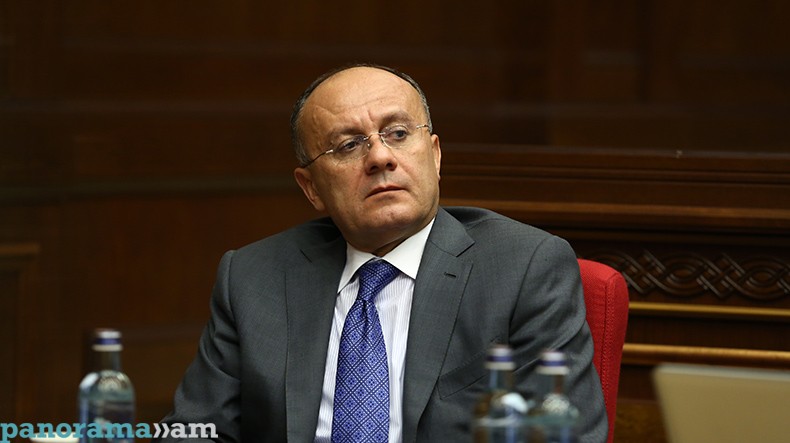
Armenian defense minister: Border tensions reached climax
Tensions on the border have reached a climax, but Armenian troops are in full control of the situation, Armenian Defense Minister Seyran Ohanyan told reporters in the parliament today.
The Azerbaijani side uses both small arms and mortars, he said.
Commenting on intensive ceasefire violations by Azerbaijan, S. Ohanyan said: “An enemy tank shelled army positions of Defense Army of the Nagorno Karabakh Republic in the southern direction of the line of contact between armed forces of Karabakh and Azerbaijan, but the shots were not precise. It is Azerbaijan’s tactics to destabilize the situation. Various political events may become a reason such as a meeting of the two presidents, the situation in the region, in the Middle East”.
According to Ohanyan, the Armenian side has taken preventive measures, and the situation is under control. “I want the Armenian people to be sure that we have created mechanisms of deterrence,” the minister said.
When asked why Armenia does not appeal to international organizations such as the OSCE and the UN Security Council, S. Ohanyan replied” “We are dealing with a neighbor who does not understand a human language. They fail to understand the need to develop relevant mechanisms for creating an atmosphere of trust in order to reach success in negotiations. A ceasefire and mutual agreements are necessary for a dialog. It is only an international investigation that can establish which side is to blame. The time has come to do serious work so as to form mechanisms for international investigation of incidents, and for targeted opinions. I spoke to Personal Representative of the OSCE Chairman-in-Office Andrzej Kasprzyk and told this to him. But Azerbaijan does not understand a simple human attitude. We exercised restraint during the European Games, and elections to Milli Mejlis, no violations were reported. Yet the December 6 constitutional referendum in Armenia has led to an escalation of tensions in the past 4-5 days. For that reason, many commanders were unable to leave their military posts and cast their votes in the referendum”.
Newsfeed
Videos






























